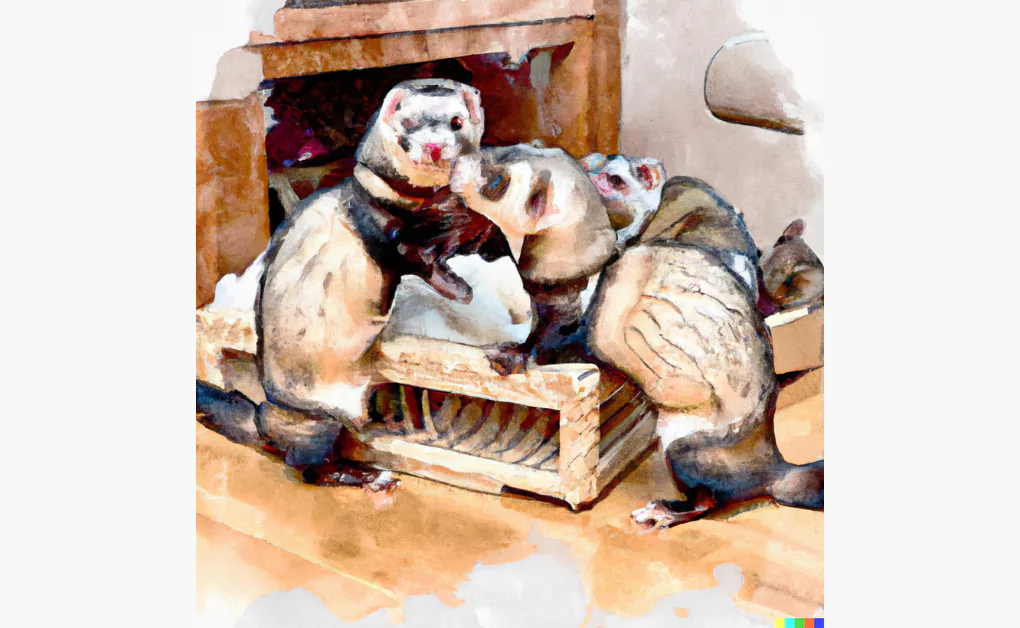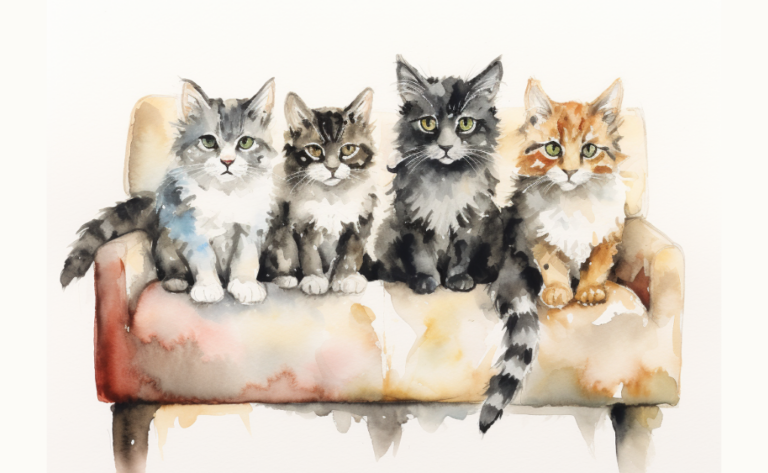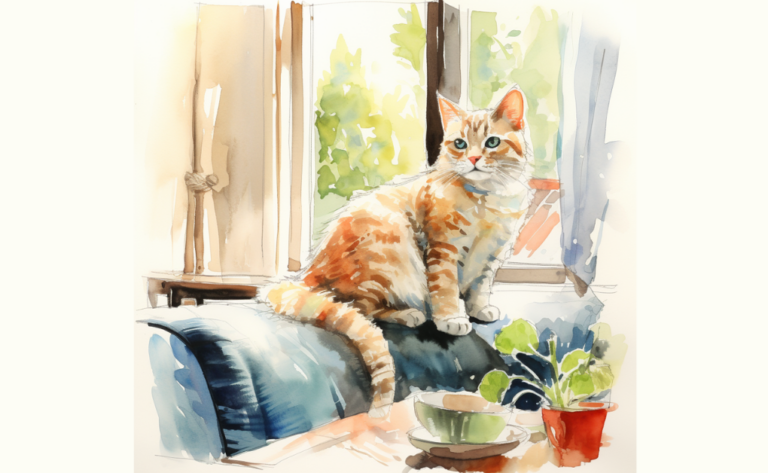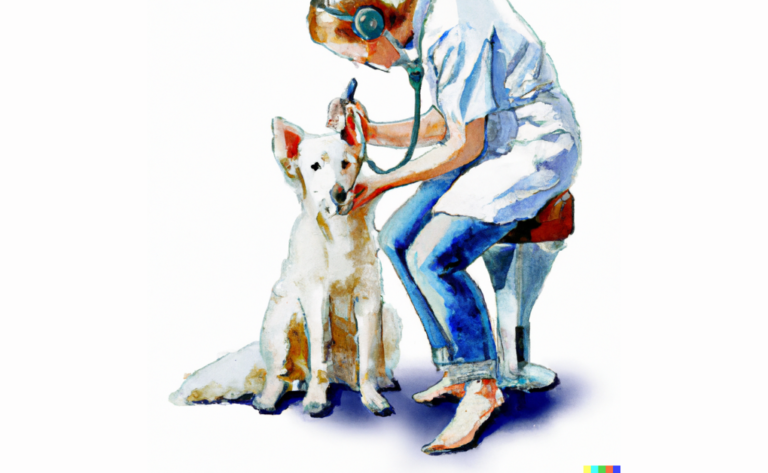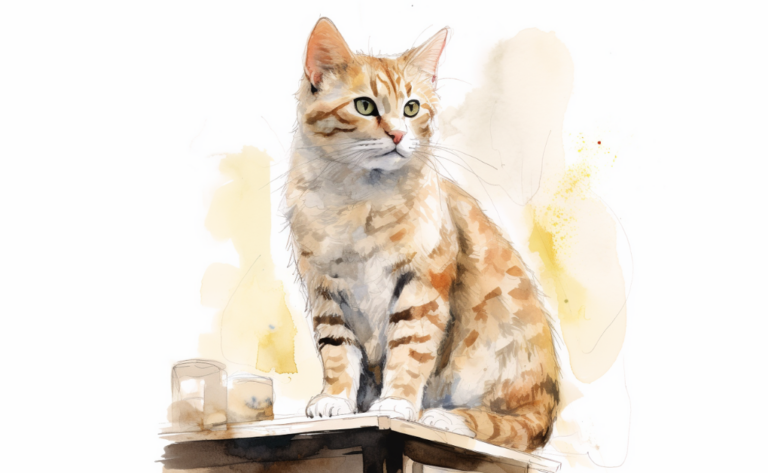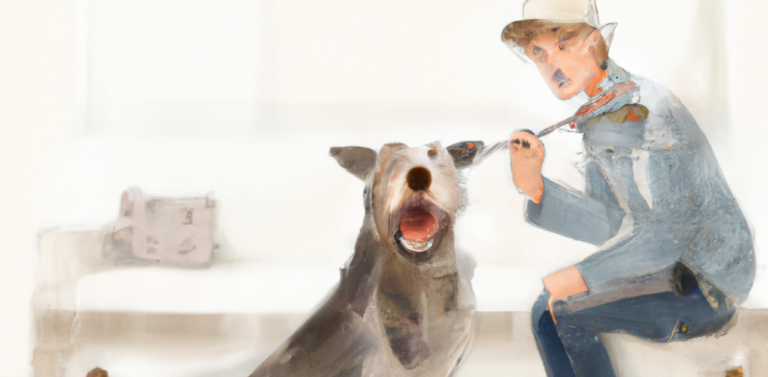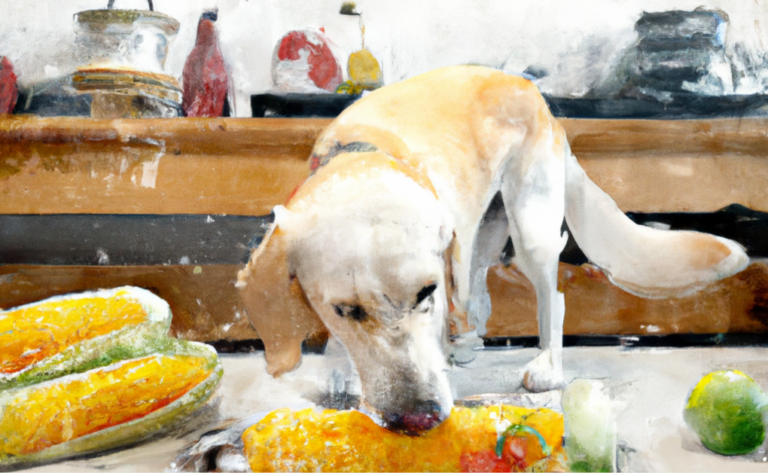Ferret Care Guide: My Hints On Caring For Pet Ferrets
Introduction
As Mike sat on his couch, scrolling through cute photos of ferrets, he couldn’t help but smile. He had been toying with the idea of adopting a pet ferret, but wasn’t quite sure what to expect when it came to their care and needs. After many hours of research and consultation with experienced ferret owners, Mike was ready to welcome a new, furry companion into his life.
Ferrets are cute, cuddly pets that are great companions. They’re playful, energetic, and intelligent. When they are sold or brought home as pets, it is essential to ensure that the ferret has a companion. They require daily exercise and mental stimulation. Your pet ferrets need plenty of toys and playtime.
They also need regular grooming to keep them looking healthy and clean. Grooming includes brushing, combing, bathing, nail clipping, ear cleaning, teeth cleaning, and deworming. If kept intact and not allowed to breed, female ferrets (jills) who are not being used for breeding must be spayed as soon as possible to avoid a 90% risk of hormonal complications.
If you’ve never owned a ferret before, here are some tips to keep your ferret healthy and happy.
What Do Ferrets Eat?
Ferrets are carnivores, which means they must consume meaty diets. Therefore, they should be given a variety of meats such as chicken, beef, lamb, pork, fish, turkey, rabbit, duck, venison, and organ meats like liver, heart, tongue, and kidneys. These types of food provide essential nutrients that ferrets require to grow and thrive.
Grains include oats, barley, wheat, corn, rice, millet, quinoa, buckwheat, amaranth, teff, sorghum, rye, bulgur, couscous, and wild rice.
Other foods include nuts, seeds, legumes, tofu, tempeh, seitan, soybeans, lentils, chickpeas, black beans, kidney beans, lima beans, split peas, garbanzo beans, peanuts, cashews, almonds, hazelnuts, walnuts, sunflower seeds, pumpkin seeds, sesame seeds, flaxseeds, chia seeds, hemp seeds, and flaxseed oil.
Foods to Avoid
Ferrets are cute little animals that make great pets. But you must know what foods to feed your pet ferret. Some people think providing ferrets with fruits and vegetables is safe, but they are wrong. Ferrets are carnivores and do not digest plants well. As a result, diarrhea and wild fluctuations in blood sugar can occur when ferrets eat these foods. A piece of cooked meat is acceptable as an occasional treat.
If you want to keep your ferret healthy, don’t feed them any of the following foods:
- Cheese
- Milk
- Chocolate
- Human food
- Fruit
- Vegetables
Creating Your Ferret’s Habitat
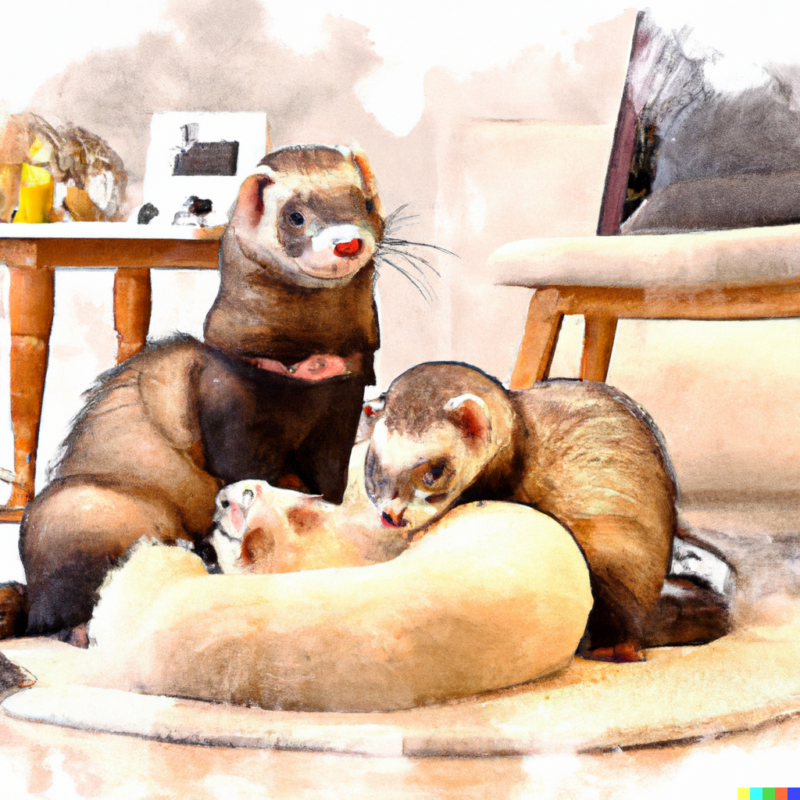
Ferrets like to play games and have fun. If you want to keep your ferret happy and healthy, make sure it has a comfortable place to live. A ferret needs a large roomy cage where it can run around. This would allow your ferret to explore more. You’ll also need to provide lots of toys for your pet to use during playtime.
Your ferret needs a comfortable resting area. He should be able to stretch out comfortably without worrying about falling off his perch. You can use a variety of materials to make a ferret bed. Some good choices include old blankets, towels, newspapers, shredded paper, cardboard tubes, and even small carpet pieces.
A ferret’s bedding must be soft and absorbent enough to keep him warm and dry. Cotton batting works well because it absorbs moisture and keeps your ferret cool. However, some prefer wool or fleece because it feels softer against the skin.
It requires a lot of exercises. To ensure that your ferret gets enough physical activity, give it access to a large enclosure that provides ample room to roam. This way, your ferret can stretch out and play without getting bored.
Make sure your ferret has a good sleeping spot. For example, please give it a box or crate that is big enough for it to curl up inside. Also, ensure multiple hiding spots to escape into if it feels threatened.
Also, place your cage in a draft-free area away from direct light. Direct sunlight causes skin irritation and eye damage. Indirect lighting is best.
Handling Your Pet Ferret
If you’re planning on getting a ferret as a pet, it’s essential to know how to handle them properly. Here are some tips to help you out.
- Never pick up a ferret by its tail. It could hurt the animal and cause injury. Instead, gently grab the ferret by its back legs. Hold it firmly when picking up a ferry, so it doesn’t get scared. Never shake a ferret. Shaking may injure it.
- Always clean your hands before handling a ferret. Wash your hands thoroughly after touching your ferret.
- Never leave a ferret alone in an enclosed space. Ferrets tend to bite when they feel trapped.
- Always supervise children who are around ferrets. Children should never try to touch a ferret.
- Never let a ferret sleep on top of your head. Its sharp teeth can easily puncture your scalp.
- Never allow a ferret to lick your face. The saliva contains bacteria that can cause infection.
- Never feed a ferret table scraps. These foods contain chemicals that can harm your ferret.
- Keep ferrets indoors only. Outdoor temperatures can be too cold for their delicate bodies.
- Ferrets are not suitable pets for families with young kids. This is because kids can accidentally knock over cages, resulting in severe injuries to your ferret.
Grooming Care For Your Pet Ferret
Ferrets are very easy to care for. They require little grooming and bathing. However, it is essential to remember that ferrets shed hair and must be groomed frequently. Grooming is necessary to keep the skin of your pet ferret clean and free of parasites.
The most common problem ferrets face is flea infestation. Fleas cause irritation and itchiness. If you notice your pet scratching excessively, take them to the vet immediately. You can use ferret-safe shampoos to help control fleas.
Bathing is recommended every week. This keeps the skin clean and prevents any potential problems. Make sure to rinse your ferret after each bath thoroughly.
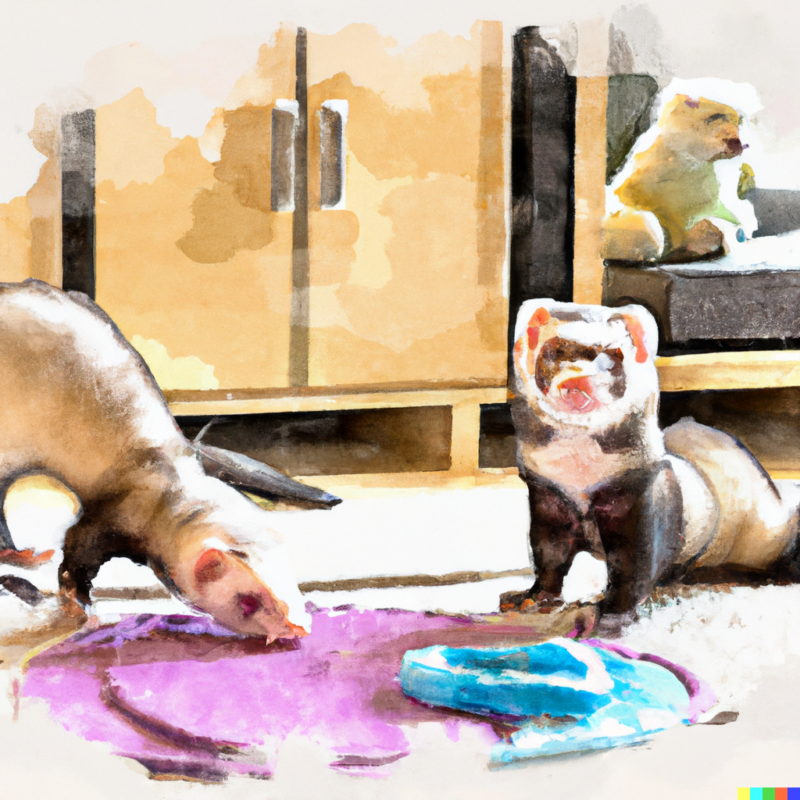
Ferrets Need Exercise
Ferrets are very active animals. They require plenty of exercises and mental stimulation. Keeping ferrets in small cages without enough space to move around makes them bored and depressed. This leads to destructive behavior,r such as chewing furniture, destroying household items, and even biting people. A ferret’s instinct is to explore and interact with his surroundings. He needs to be able to do this safely.
They should be given daily walks outside, preferably on a leash. Exercise also helps prevent obesity. Ferrets also need toys to play with. Toys provide entertainment and stimulate your pet’s mind. Some ferrets enjoy playing with balls or other objects. Others prefer squeaky toys.
Ferrets also love to chew. Chewing is a natural way for ferrets to relieve stress. But make sure that your ferret has access to safe chews. Keep them away from bones and hard materials like plastic.
House Training
Ferrets are spotless animals, but it takes some work to keep them that way. In addition, they tend to eat everything, including the litter box itself. However, several inexpensive alternatives are available if you want to save money on something other than expensive clay litter.
- Clay Litter
This type of litter is made out of ground corn husks. It absorbs moisture well and doesn’t smell foul. Clay litter is ideal for ferrets because it’s odorless and non-allergenic.
- Wood Shavings
Wood shavings are unsuitable for ferrets because they contain chemicals that can cause respiratory problems. Instead, wood shavings should be avoided altogether. Newspapers are another excellent alternative.
- Paper Towels
Paper towels are a great choice if you want something cheap and easy to make. Just cut off a few squares and place them inside the litter box.
Litter Training
Ferrets are curious animals. They love exploring and playing around, especially outdoors. Unfortunately, they do tend to make messes indoors. If you’re looking to train your ferret to use a litter box, it helps to know where he likes to sleep and play. You’ll also want to keep him away from areas where he might find food or water.
Place a litter box outside next to his favorite sleeping area. Place it about 2 feet off the ground, and make sure there is enough room between the floor and the base of the box. This way, he won’t feel trapped or uncomfortable.
If he starts making a mess, clean up immediately. Don’t let him see you cleaning up, though. He’ll associate the smell of cleaning products with being punished. So instead, distract him with toys or treats while you clean up.
Make sure to reward good behavior. For example, give your ferret some attention and praise whenever he uses the litter box correctly. This will help reinforce positive behaviors.
Interaction with Other Pets
Ferrets are social creatures who thrive when kept together with other ferrets. They’re also great at communicating with each other through body language and facial expressions. So, if you’ve got two ferrets, be prepared to watch them interact.
Ferrets are very affectionate and playful, and they enjoy playing games with each other. Ferrets are usually friendly toward dogs and cats, but some may be aggressive.
When introducing a new ferret to your pets, remember that ferrets are highly territorial. So make sure your new ferret doesn’t feel threatened by any of your current pets. Also, introduce the new ferret to your cat when he’s fully grown. Otherwise, your cat may attack him.
Keep in mind that ferrets have sharp teeth and claws. So ensure that any other pets in your home are safely secured. Also, never leave your ferret alone with an animal bigger than him.
Health and Veterinary Care
Ferrets require annual vaccination shots. They are prone to distemper, which requires a vaccine shot before adoption. A blood test is recommended to check for other diseases and conditions.
Ferrets need regular dental care as well. Brush their teeth daily using a soft toothbrush and warm water. In addition, they keep their nails trimmed regularly.
Ferrets are susceptible to many common household illnesses,s such as fleas, mites, ear infections, ringworm, and diarrhea. These can quickly spread throughout your home.
To prevent these health issues, wash your hands frequently and avoid sharing items like towels, bedding, dishes, and utensils. Also, don’t allow your ferret to lick your face or drink out of containers.
Frequently Asked Questions
Disclaimer: The information provided on this veterinary website is intended for general educational purposes only and should not be considered as a substitute for professional veterinary advice, diagnosis, or treatment. Always consult a licensed veterinarian for any concerns or questions regarding the health and well-being of your pet. This website does not claim to cover every possible situation or provide exhaustive knowledge on the subjects presented. The owners and contributors of this website are not responsible for any harm or loss that may result from the use or misuse of the information provided herein.

